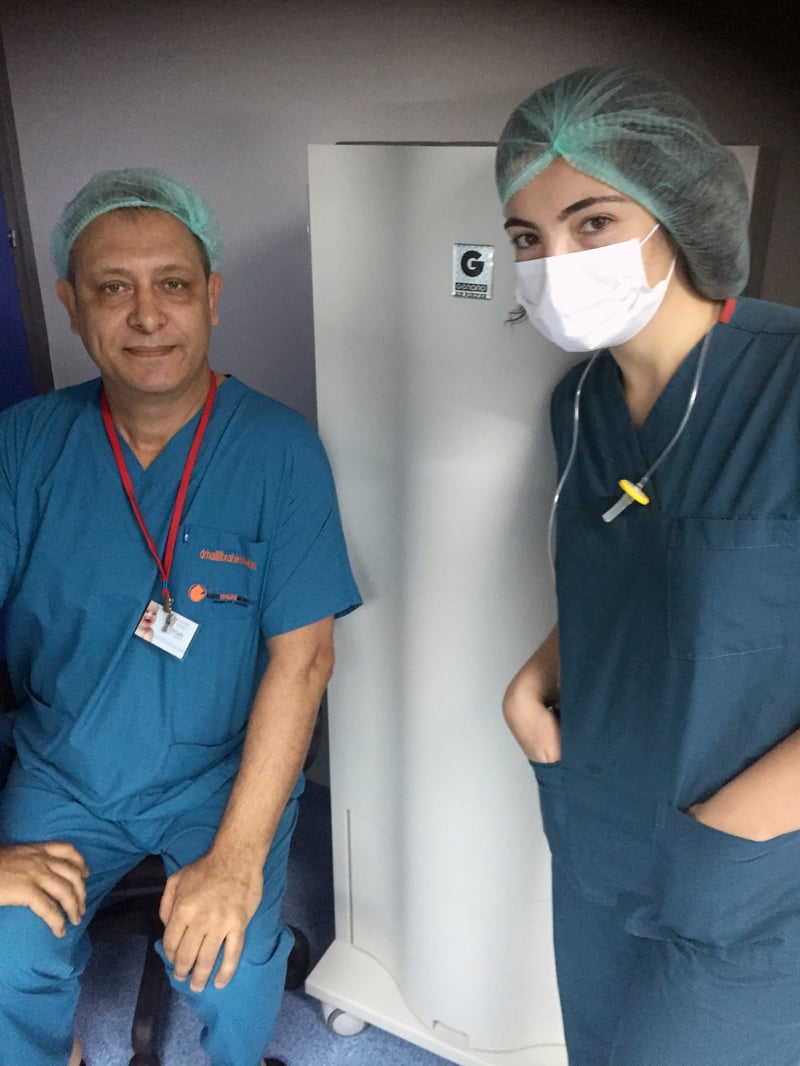Crown IVF - a top-class fertility clinic that makes dreams come true
- Two in vitro fertilization clinics in Cyprus
- Team of over 50 employees under the head doctor and owner Dr. Halil Tekin
- Over 25 years in the field.
- Performs all forms of IVF with specialization in egg donation, PGD/PGS/gender selection and surrogacy
- www.cypruscrownivf.com
In the field of IVF air quality is of utmost importance
A considerable part of success in in vitro fertilisation (IVF) is determined by environmental factors related to the laboratory environment where the fertilisation and treatment procedures are carried out. In addition to optimal environment, factors such as maternal age and cause of infertility are important for ensuring a successful pregnancy. An optimal environment is crucial for ensuring high quality embryos with good viability.
“We are working with live cells which will be grown into full human life. Any contamination may affect the oocytes or embryos down to DNA level before we have implanted the cells to the mother”, describes owner and head doctor of the Crown IVF Cyprus Centre, Dr. Halil Tekin.

Owner & head doctor of the clinic, Dr. Halil Tekin (left) with embryologist Ayse Sahin (right)
Recent research has shown that the laboratory air quality can have a drastic effect on the IVF outcome. Volatile organic compounds (VOCs), microbes and particles are all known to have a negative effect on embryonic development. Contaminants can enter the laboratory from various sources including supply air, personnel and equipment. Once they interact with samples, tissues or anything in contact with the cells, the damage is done.
Nanosized ultrafine particles, which cannot be eliminated with HEPA filters, are dangerous as they can attach to and penetrate the cells and interfere with development processes.
VOCs are especially harmful to embryos
These small volatile organic compounds (e.g. styrenes, formaldehydes, glutealdehydes, toluene) can directly attach to DNA and terminate growth. Studies have established that even small amounts of VOCs in the ambient laboratory air can decrease pregnancy rates. In laboratories, VOCs can originate from equipment, disposables, construction materials and clothing.
Using Genano air purifiers to further purify HEPA-filtered air
Optimal air purification systems for IVF combine nanoscale particle removal and active carbon to eliminate all chemical and particulate contaminants.
Improved embryo viability due to air hygiene combined with positive pressure and sterility precautions can prevent contamination and thus improve the IVF success rate.
Dr. Tekin originally found Genano through web searches and research. “As a company, we always strive to stay modern and give our patients the best chance of success.”
5% success rate increase with Genano air purifier in the laboratory
Crown IVF made an empirical study comparing success rates with and without Genano in use. They discovered a 5% success rate increase with all other variables taken into account.
“Since using Genano air purifiers we have had a marked increase in our success rates in terms of first time pregnancy results and less miscarriages”, summarises Dr. Tekin.
Due to the successful results, Crown IVF decided to install more Genano air purifiers in their state-of-the-art premises. Over the years, Dr. Tekin and his team have helped over 22 000 families to reach their dream of having children.
“Going through fertility treatment can be a stressful process for people. We want to make it as easy and successful as possible. We want to turn their dreams into reality”, says Dr. Tekin.
“If I did not believe in the product then I would not endorse it”, says Dr. Tekin.
.png)